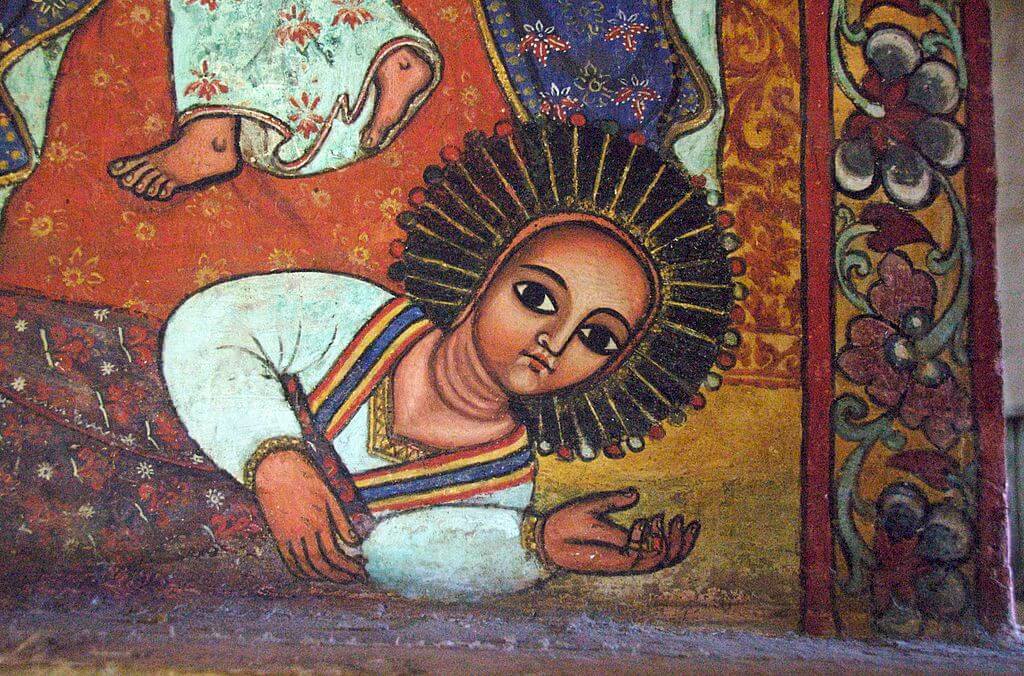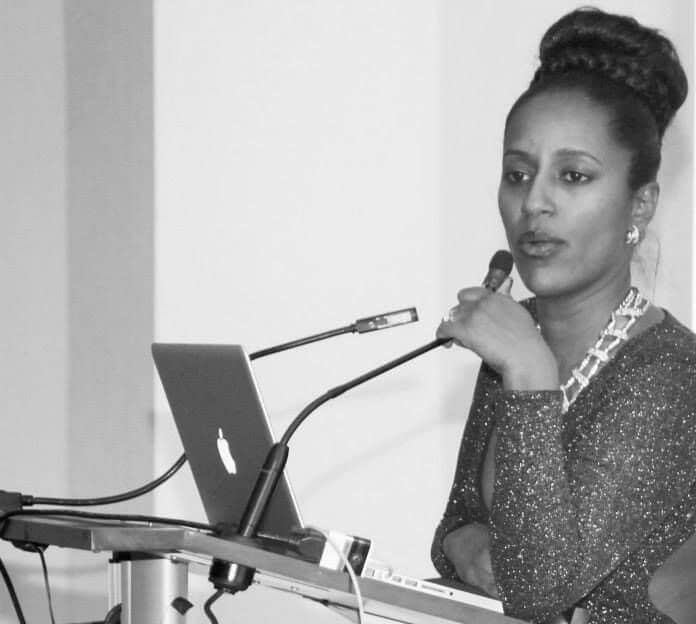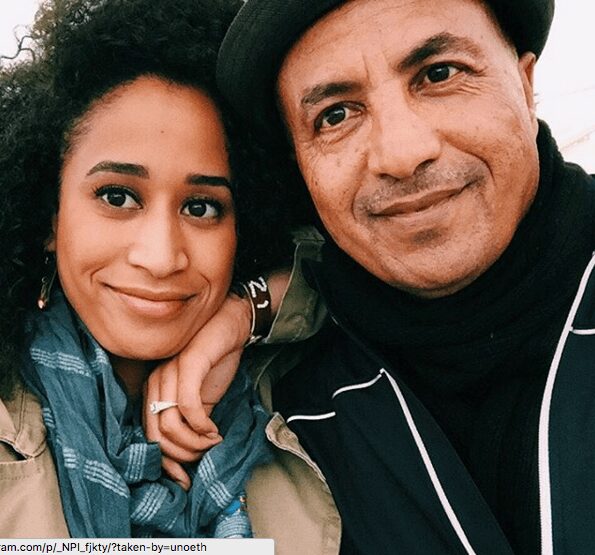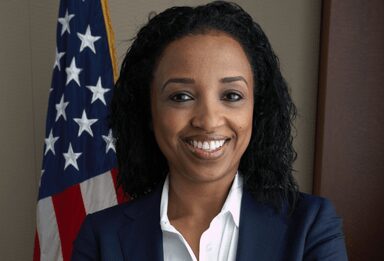Yoadan Tilahun: Nothing gives more credibility than the quality of your work

So many of us dream of turning our side hustles into main ones. Few of us do but Yoadan Tilahun is one of the few who’s managed to succeed. Yoadan founded Flawless Events while working full time in corporate trade in the Washington, DC area. Flawless designs and produces corporate events, brand activations, international conferences and trade fairs on behalf of its clients in a number of industries. These include Coca Cola, Google, World Economic Forum, Africa Leadership Network among many others. Yoadan moved Flawless to her home city, Addis Ababa in 2008, where it has been flourishing since. Heran Abate, SLA contributor, spoke to Yoadan whose career decisions and approach to life demonstrate a calm boldness that exemplifies the #MotherlandMogul. Having worked in corporate trade, why did you decide to start an event management company? It started as a side gig, actually. I was looking for an additional source of income to supplement my day job. Around that same time, the events I was attending were quite unorganized —so I leveraged my existing network and tried my hand at it. But from the beginning, there was no two ways about it. The very first event sparked this exhilaration in me —from brainstorming initial designs to realizing the finest details, I was hooked! To this day, there’s nothing quite like the adrenaline rush of being in perfect sync with my team. Especially when months of planning and toil pay off and an event falls seamlessly into place before our eyes. It sounds like it was going well in the US, what prompted the re-location of the business to Addis Ababa, Ethiopia? Ethiopia has long been a center for African intergovernmental affairs, being the seat of the African Union and the Economic Council for Africa. So, there were already many international conferences going on. Particularly around the Ethiopian millennium (September 2008 —we follow a different calendar), there were a number of grand initiatives to broadly expand Addis Ababa’s infrastructure and create larger FDI (foreign direct investment) opportunities. This meant an increase in modern facilities, roads and an influx of investors who were looking to tap into networks and opportunities. That was the market gap Flawless came to Ethiopia to fill. Would you say this re-location was the turning point for the company? Yes and no. While it was good timing, the hard work ahead was in building the momentum. We had to adapt to new regulatory frameworks, re-adjust to an entirely different set of clients. And also build relationships with vendors from the ground up. Like any start-up, the initial stages were crucial. You have to be tireless and tactful in pursuing new clients, being a step ahead of their needs. Until you build a reputation for over-delivering in (seemingly) effortless fashion. That sounds like there’s more good advice where that came from for our readers, could you elaborate? Certainly. To put it simply, nothing gives you more credibility than the quality of your work itself. No amount of advertising can make up for a poorly managed event. It was through happy clients’ referrals that we were able to get some of our highest profile and exciting events. So what makes for a flawless event? What else helped you establish a compelling brand and reputation? Clear process and production, the two are different but both critical. The first requires top-down strategy to tackle the separate pieces of the whole. It also entails investing time in creative output and designs to personalize the event then tireless follow-up. As the event nears, we burn the midnight oil, making sure there are no loose ends affecting back up plans and that we are in constant readiness for crisis —this is inevitable. Our clients rely on us to trouble-shoot and problem-solve on the spot —a late visa, equipment held up at customs etc. Are the majority of your clients international? What industries do you serve? About two-thirds of our clients are international. We mostly do corporate events, international conferences in trade and investment, development as well. We have held events that companies used as entry platforms into the Ethiopian market —Google’s first event for example. We’ve set up high-level meetings for finance entities who don’t have contacts in the country. Most recently, we organized an event in which Ethiopian Airlines celebrated its newest plane acquisition by setting a Guinness World Record for the largest human formation of an airplane. That was fun! How do you nab these high-profile events? We are tireless in building and sustaining relationships both locally and internationally. We are the only private-sector members of the International Congress & Convention Association. We are close partners with professional networks in Africa including African Leadership Network (we’ve hosted their event in Kigali and Addis) as well as Extensia —a continental group of high-level professionals in ICT. On the ground, we have excellent working relationships with hotels, government offices as well as previous clients. This gives us a lot of leverage to flexibly offer our clients a whole buffet of options. Your increasing influence sounds like a direct result from the events you have previously organized. Yes. Our influence is built on opportunities born out of our previous work and our growing network, clients calling us back to take on new events or referring us to contacts in new industries. You were very recently selected among 30 women entrepreneurs to take part in the Graça Machel Fund’s Woman Advancing Africa. What was the goal of this forum? What are the implications for Flawless? I’m honored to have been selected. Graça Machel is a Mozambican humanitarian and also the widow of Nelson Mandela. This forum is a platform for African women entrepreneurs to leverage their capacity and networks to influence the economic trajectory of the continent. It’s because of the integrity of the work that our client’s have attested to that we are invited to take part in larger conversations about entrepreneurship, economic growth. In Ethiopia as well, we are now well-positioned to take initiative in expanding the MICE (Meetings,
Atti Worku: I wasn’t smarter than them, I just had more opportunity

Former Miss Ethiopia and Columbia University alumni, Atti Worku started Seeds of Africa Foundation (Seeds) as an afterschool program in the backyard of her childhood home in Adama, Ethiopia. Eight years later, the program has evolved into a full-time school which serves 114 children from poor families (with plans to serve over 150 students from September). Seeds’ model is a far cry from the traditional ‘chalk and talk’ methods in most Ethiopian schools with project-based learning forming the base for all learning. In addition, Seeds runs complementary community development programs including a microloans program for women to start or grow businesses, adult literacy training and health and gender workshops. Seeds of Africa plans to expand to a full pre-K to 12 program through its Dream School Campaign to purchase land and build a state-of-the-art education and community hub. SLA contributor, Liz Moran, who just so happens to be the Country Director of Seeds, recently chatted with Atti about Seeds’ origins and visions for the future. Where did the idea to start Seeds of Africa come from? You know, in the neighborhood where I grew up, most of the kids who lived nearby went to public school. I was lucky to attend a good private school. By middle school many of my neighbors were dropping out of school. Boys would drop out and work in the informal market while girls were getting pregnant. You could see all of the issues associated with poverty. I didn’t fully understand what it all meant at that time but as I got older I realized that I wasn’t smarter than them or anything. I just had more opportunity. Seeing these issues firsthand left a great impact. It was people I knew and grew up with and once I had that understanding I knew I wanted to do something. You started Seeds as an after-school program which later evolved into a full-time school. When you were laying out your plans for Seeds, how did you want it to be different from other schools in Ethiopia? When I was conceptualizing the program, I wanted to focus on quality. At that time elsewhere, there was a huge focus on numbers. The big push was to put kids in school rather than looking at what they were learning or the learning outcomes. I wanted to provide opportunity for students to reach their potential. I know this is cliché but I didn’t want kids to be limited by what was around them. I also wanted something that focused on the whole family rather than push kids away from homes. I knew I didn’t want a boarding school. Finally, I wanted to create a place where both boys and girls got the opportunity to learn together. We definitely need a push for girls’ education but I also believe that if boys and girls are in same space and learn to collaborate as children they can work better together as adults. I know that you recently returned to Ethiopia after several years abroad. How did it feel coming back and what changes have you seen in the country? The population growth is intense. You read about it but then in person you are confronted and think, “Holy cow, that is a lot of people!” The difficult thing is that the poverty is still there. The economy is growing but the population is growing even faster. On the positive side, the infrastructure has really improved which is necessary for development. Mostly, I was struck by how a lot of younger people are working now. People are very entrepreneurial. Growing up there was always a sense that people had lost hope. It just seemed insurmountable. People didn’t know where to start so they didn’t. I loved seeing the hustle of so many people –especially women– going to work in the mornings. With Seeds, seeing everything after so many years was really incredible. The kids are unbelievable. They are so smart, and inquisitive; so confident! When you think of the backgrounds they come from it is really a testament to the work of our team. They really understand why this work is important and treat the kids with a lot of love and respect. I also loved seeing the women whose businesses our microloans program has helped start or expand. It is actually changing the quality of people’s lives. I know this is probably hard but if you had to pick a favorite moment from your trip to Adama what would that be? So many but I really loved break time when the kids would all be jumping around. Everyday, I was secretly waiting until they’d come out of class. For me to be able to play the games I played when I was a kid with them was really great! I was also really touched when the mothers organized a coffee ceremony for me. They took initiative on their own. Oftentimes people think that if you’re poor, you’re helpless but that could not be further from the truth. They made that very clear when they collected their own money to have a get together and talked about wanting to give back to Seeds and contribute. They would say, ‘Tell us what more we can do.’ I really appreciated that! Looking towards the future, tell me a bit about the Dream School Campaign and Seeds’ plans for expansion. Currently, we have been renting facilities for our current campuses which is difficult. I believe that environment is a big part of learning. If you learn in a well-designed environment, you learn better and, more importantly, you see what is possible. I want to build something that our students and the community are proud of. In addition, the new facility will not only be a school but also a space that the community can take advantage of. We want to create a hub for other organizations to provide service and collaborate. We want to create the first public library in Adama and establish a model of how
7 history lessons from bomb-ass Ethiopian women

In our modern quest to being Motherland Moguls, sometimes it’s refreshing to peek back into history for validation. There, we find stories of women who just didn’t take no for an answer. These women also overturned the status-quo and created worlds that they believed they deserved to live in. There are countless women in our continent’s history that were kings of their own castles, literal and metaphoric, despite the odds. This is the case for these five Ethiopian women who insisted on their individuality at any price and still brought repute and victory to their country and continent. Yodit Gudit, c. 900 The Commander in Chief. For the woman who courts controversy and knows that sometimes she needs to be ruthless. This rebel queen reigned over a sovereign kingdom just outside the sprawling Axumite Empire, which at its height spanned all the way from Ethiopia to present day Yemen. When her territory was threatened with occupation by the Empire, Yodit initiated an offensive. Her tactics didn’t just expel enemy troops from her lands but chased them all the way back to the seat of their kingdom. She chased ruling elites of the Empire from town to town, until she brought about the complete dissolution of the Axumite Kingdom. Yodit’s rule marked the beginning of a dynasty that introduced a new bloodline, breaking nine centuries of rulers who traced their kinship back to Queen Sheba and King Solomon. She is notorious in written and spoken accounts of ancient Ethiopian history for her zeal for vengeance. In fact her last name, Gudit, is an epithet that translates to an infernal capacity for destruction. While her legacy is controversial, it is undeniable that she was resourceful in leveraging military might as well as fear tactics to take on a behemoth Empire that was much more endowed in artillery and troops than she was. Empress Taytu Betul, c. late 1800s Military strategist and pioneering Motherland Mogul. Empress Taytu’s goals for the woman who accepts diversity in business development. When Italy invaded Ethiopia the first time, the empress didn’t sit back while her husband, Emperor Menelik, drove troops to the war front. Instead she led 5,600 infantry and cavalier men into battle and took the stead of military counselor to the generals in command. Leading up to the decisive battle of Adwa, she suggested a decisive strategy to weaken the opposing troops –cutting off water supply to the Italian fort rather than attack it directly. After a humiliating defeat of the Italians, diplomats looked to the peace treaty to achieve their colonial ambitions through a deceptive technicality that would allow them to have protectorate rights over Ethiopia. Taytu stopped at nothing to revoke the treaty, which she did successfully. In peacetime, wife and husband capitalized on their separate strengths to build a formidable and forward-bound nation out of the newly reconstituted Ethiopia. While Menelik travelled to quell rebellions within the country, Taytu stayed in the new capital, Addis Ababa, a city she had selected herself. She pioneered industrial growth by setting up the first wool factory in Ethiopia after consulting with experts from Turkey and India. She encouraged the growth of cosmopolitan life by opening the country’s first modern hotel that served both local and international cuisine. Senedu and Yewubdar Gebru c.1930s Freedom fighter and vice president of parliament. Freedom fighter and virtuoso pianist. These sisters show that two heads can be better than one in the marketplace. The repertoire between this sisterly duo includes guerilla warfare, virtuoso classical music, ten books, five languages and leadership of the country’s largest institutions. They were among a handful of their generation to win scholarships patronized by their home city governor to study in Europe. Quite like our present day shift towards repatriation, they chose to return to their country and become teachers. Soon after, Fascist Italy invaded for the second time. Rather than join their families in safe exile, these sisters took up arms alongside their countrymen. They joined the Black Lion movement to expel Italians out of Ethiopian territory. Before Ethiopia was liberated by 1940, they spent two held captive in a jail on an Italian island. There, they snuck in material to learn Italian to cast off lethargy. Upon return to their motherland, they took separate paths but continued to share a passion for life. Senedu became a national figure in the multitude of public roles she assumed. As a headmistress of a renowned all-girls school, she became a compelling role model. She cultivated a generation of girls into leadership under her strict tutelage. As the first woman in parliament, she was also known for her bold challenges to order and outspoken rhetoric. This earned her vice presidency in later years. The younger sister, Yewubdar, joined a monastery, adopted the name Emahoy Tsegue-Mariam and continued to hone her expertise in classical music. To this day she lives in Jerusalem and travels worldwide to play her self-written numbers on the piano. Asnaketch Worku, c. 1950s Artist Extraordinaire. We all love women who calmly ignore societal dictates on what is “proper feminine behavior”. Asnaketch is the one for the women in industries that are considered unfeminine. This woman was a force of nature. Her charm on and off stage held her audience’s attention in a fit of willful siege. Asnaketch was a theater actress and a dancer to boot, but she was most revered for her music. The mastery with which she spun her hoarse and sonorous voice with the searing sound of the kirar (a traditional string instrument) into bewitching tales of love, loss and independence held many in awe. She belonged to a school of music, azmari, that at the time was considered immodest. This was due to its explicit nature compared to the characteristic conservatism of Ethiopian culture. Asnaketch paid no mind to the stringent mores of womanly propriety. She had a tailor on hand to weave her daring costumes, raised children that weren’t her own and
Ledet Muleta: I had to ask myself, “What is the loudest way to make a statement?”

Mental health is rarely approached with the care and attention it deserves in both African and African Diasporic communities. Nurse turned filmmaker Ledet Muleta hopes to change this statusquo. She started Medixaa Health Services to address the lack of proper mental health care in many African countries. Now Ledet wants to push further with her most recent project the film CHULA, which she is currently running a Kickstarter campaign for. Here Ledet shares valuable insight to those Motherland Moguls who want to be filmmakers but are not sure how. She also reminds us why mental health and substance abuse should be of more concern. Your work draws attention to mental health in Africa, is there anything in particular that lead to this? I have been pretty fortunate to have the experience of working in facilities that support a large population of psychiatric patients. I worked for six years at the University of Maryland Medical Center where I gained great experience in giving care to those affected by different types of psychiatric conditions. Our hospital was in the heart of Baltimore City and we took great pride in providing high quality psychiatric treatment. I learned how to deal with acute psychiatric conditions and took care of patients that smaller hospitals could not care for, enhancing my ability to handle stressful situations. Since then I have been working at the National Institute of Health (NIH) as a Research Nurse focusing on mental health. The NIH has inspired me even further as I get to work with renowned scientists, dedicated nurses, and an overall interdisciplinary team. Each time I traveled to an African country, I dreamt of replicating that level of care and the impact it makes. I also had a year long volunteer position as a nurse working with refugees in the Washington D.C. area, mostly from Ethiopia and Eritrea. That was certainly an eye opener and the motivator behind this entire project. The stories I heard and the heartache I felt enabled me to be fearless about starting this project. How is mental illness viewed in your community and what else can be done to change attitudes? Mental illness carries stigma all around the world but in my community, this stigma is severe. People who suffer with mental illness in Ethiopia are often forced into isolation because their families are ashamed of them. The problem is often hidden and ignored until it is too late. Some forego healthcare completely, and subject their mentally ill family members to constant religious intervention, when the issue could easily be solved with medication. It is important to divert more funds towards mental illness. With the proper funding, access to medication and information could make mental illness easier to manage. In order to change attitudes, it is also important to create a more public dialogue about mental illness and what it means to be mentally ill. If people talked about their experiences with mental illness, it would be normalized and those suffering with mental illness would know that they’re not alone. Another way to combat these issues is with education. By providing educational resources on substance abuse and mental illness we can ensure that our community no longer feels the need to be ashamed, and that they know that their conditions can be effectively managed. What message do you hope to tell with CHULA? The inspiration for CHULA comes from seeing some preventable issues becoming life threatening problems for individuals. There is no cure for mental illness, however, most mental illnesses are treatable and can be managed. The lack of access to adequate mental healthcare combined with the stigma of mental illness has intensified the impact of mental illness in Africa. Furthermore, the market for drugs like heroin and cocaine is growing in many African countries, making substance abuse a major health concern as well. With the public looking for preventable education, many are becoming victims and that disparity is what inspired me to make this film. As a nurse, when did you take the leap into film making? Is CHULA the first film you’ve made? I never thought I’d ever venture into film making. This happened out of desperation to tackle the stigma of mental illness in the African community. In my own experience, I see too often that Africans in the Diaspora have a hard time dealing with the stigma in their communities. This often forces them to hide their personal struggles and as a result, they often find themselves in a more dire predicament. In my travels across different countries in Africa, I was enraged to see so many affected by mental illness as well as substance abuse. I wanted to start a campaign that would address these issues and I had to ask myself, “What is the loudest way to make a statement?” which led to the creation of my first film, CHULA. How did you go about getting the skills to be a filmmaker? The first thing I had to do was to draft the script for the film while simultaneously weaving my travels as a great source of inspiration. I wrote the script in various environments, either spending time with my close friends or on long flights from DC to Maputo, for example. Once I completed the script, I reached out to friends who were highly involved in the arts and pitched my script in the hopes of finding a director. That’s when I was connected with Shane Colella, CHULA’s director, and it was through him that I was able to learn more about the film making process and gain the relevant skills needed in order to be successful. Additionally, I had to take the initiative of going through my own personal learning process; this occurred through attending film events and turning to the library and internet for resources, and so forth. What words would you use to describe the last three months of your life? Fearlessness, trust, dedication, team work, and change are some of the words that can
Xiomara Rosa-Tedla: There are benefits to starting a business with family

Many people ask how and why my father and I started our business. And to be honest, it was by accident. About two years ago, my father returned home from a trip visiting family in Addis Ababa, Ethiopia. After picking him up from the airport and unloading luggage, he handed me a gift— a custom, handmade leather messenger bag. Immediately, I fell in love with my new gift and sported it everywhere. From work to dinner to weekend trips, I toted my new bag all around the world. And soon after, friends, family members, and strangers started asking, “Where did you get your bag? I love it! Can your dad get me one as well?” For months the questions and requests kept coming. Even my father told me he had been getting the same questions, and suggested, “Hey, I think we have a business here. Let’s start a leather bag business!” Shortly after, the birth of UnoEth began. Starting a business from scratch is a fun creative process, where brainstorming sessions let your mind run free with ideas and opportunities for your business to grow exponentially. But as with any business, the road to success is never a straight line up. There are dips, curves and encounters with the unknown. In addition, it can be a lot of work. On the bright side, there are benefits to running a business with family. A family member as a business partner can be extremely beneficial— especially my dad. Having an equal partner with a long history (my whole life) and blood ties helps solidify communication, trust, and dedication to succeed. Neither partner wants to let the other down. From day one of creating our new business, I felt unbelievably confident in our new venture because my dad and I shared the same vision and passion for our budding brand. In addition to trust, communication, and dedication, working with family also means splitting responsibilities. As we both grow our business around our full-time jobs, we wish there was more time in the day to juggle responsibilities. We split outstanding tasks, which alleviates the stress and workload on both of us. Communication is key to maintaining strong relationships with each other, our vendors, shipping counterparts, business partnerships and most importantly, our customers. In the development of UnoEth, we’ve learned to communicate promptly to avoid creating a bottleneck in our business. Thanks to apps like Viber, we’re able to communicate easily internationally via wifi and all stay on the same page— just in different time zones.It’s incredibly important to maintain a positive, can-do attitude with a goal always in sight. As mentioned before, the road to success is never a straight line. Every business experiences road blocks and obstacles, which can deter most individuals from starting a business in the first place. But with an optimistic, focused, and goal-oriented outlook, one can overcome the temporary downfalls, cross the finish line and push on to the next stage. At the end of day, one must ask, “How bad do I really want to be successful?” And then simply just go for it! What are your thoughts on starting a business with a family member? Enjoyed Xiomara’s story ? Share the UnoEth story with your network.
Career lessons from Ethiopian born business mogul, Mimi Alemayehou

Ethiopian born, Kenya raised Mimi Alemayehou is a Managing Director at portfolio company Black Rhino Group, and Executive Advisor and Chair of Blackstone Africa Infrastructure LP. After studying International Law and International Business, Alemayehou found development consultancy firm Trade Link Holdings LLC. She has held major positions as Director of International Regulatory Affairs at WorldSpace Corporation and was United States Executive Director at the African Development Bank. The mother of two has also served as Executive Vice President of the Overseas Private Investment Corporation (OPIC). If you are like us, you will hold your breath after reading about Alemayehou’s career journey. Below, we share some insights from this African power lady. 1. Strive for your educational goals Mimi: The first successful entrepreneur I knew and looked up to was my grandmother. She could not read or write but she was one of the smartest women I have ever known. I often wonder how far she would have gone if she had been allowed to go to school by her parents, who chose only to send the boys to school. Although, the silver linings of your career may not shine through that window frame just yet, your education is a step towards reaching your career goals. Mimi agrees (higher) education is a huge part of the African growth story. 2. There is much more in your future After being asked whether she thought her position at OPIC was the climax of her career, Mimi replied: “I have always believed that life is a journey of learning; there is no end to it until you are no more.” Although, success can be comforting, that comfort shouldn’t stop us from going beyond our comfort zones. There is always a next move. “I don’t believe there is such a thing as a perfect position or a dead-end job. At every step, you learn. Life’s a journey of learning.” 3. Believe in your work ethic During her career at the African Development Bank, Mimi was the only woman working in the midst of 17 men. “I have never doubted myself in the things I pursued. Fortunately, I have had some amazing mentors in my life and in turn I try as much as I can to mentor as many people, particularly young women.” Confidence is key when it comes to directing your future. Feeling strong about what you do and what you want will minimize doubt. 4. There are ways to do it all “In terms of the balancing act of career and family, I believe mothers are natural multi-taskers”, is Mimi’s response to ‘how she does it’. And no matter how many exciting career moves she has made, she says “being a mother is my biggest accomplishment so far.” Mimi believes prioritizing and accepting the pros of cons of having to travel for work is key to combining career and motherhood. 5. Approach situations with an open mind “My most impressionable years were probably during my time in Kenya. I met so many people from many parts of the world for the first time in my life and that had a long term impact in my life as it made me more open-minded and gave me a greater appreciation for human diversity,” says Mimi. 6. Be picky with what advice you take Mimi’s powerful statement: “I got to where I am today partly because I did not always listen to the advice I got. For example, earlier in my career I was always interested in working on Capitol Hill but a lot of people, including some of my own family members told me that there was no way a member of Congress would hire someone who was not an American citizen. I pursued this dream anyway and was ultimately hired as legislative staffer on Capitol Hill. I have found it invaluable to question things and not necessarily take “no” for an answer.” Be aware of your possibilities, be thorough in how you approach them and follow through. If you’d like to share your story with She Leads Africa, let us know more about you and your story here
